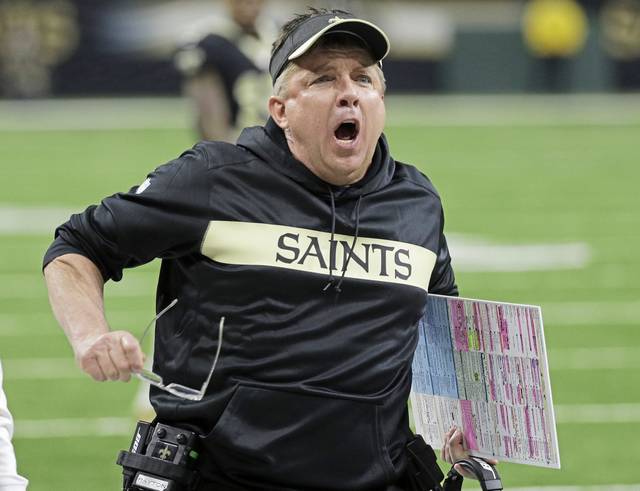Mark Madden: NFL's knee-jerk decision is misguided overreaction
The NFL has added pass interference calls (and non-calls) to the list of officiating decisions that are subject to a coach’s challenge. The Steelers’ Mike Tomlin is 0-for-2-years on such requests, so this provides additional ways for him to screw up.
Each coach is still allowed just two challenges per game, and a third if he gets one correct. (Not that Tomlin has to worry about the latter.) The booth can opt to review any play in the final two minutes.
This is grotesque overreaction to a bad non-call that put the Los Angeles Rams in Super Bowl LIII instead of New Orleans. It’s hard to forget the Saints were hard done by, especially with their entire fan base whining non-stop since. Making interference subject to review is predicated on that event, and nothing else.
Cincinnati’s Mike Brown was the lone NFL owner to vote against making interference reviewable. Brown got it exactly right when he said, “Too many teams who felt injustice reached out with a proposal to correct it in hindsight through instant replay going forward. Spare me. We all have those cases.”
The Steelers did. They lost 31-28 in Week 16 when a phantom interference call against cornerback Joe Haden on fourth-and-1 wrongly kept an opposition drive alive and resulted in a touchdown. That defeat kept the Steelers out of the playoffs.
The beneficiary was New Orleans. That tainted win got them home field in the NFC half of the playoffs. Bad calls aren’t so bad when they benefit you.
The NFL’s knee-jerk reaction to the non-call that robbed the Saints in the NFC championship game is identical to what happened when San Francisco catcher Buster Posey broke his leg and tore ankle ligaments in a 2011 collision at home plate. MLB decided, after that, runners basically had to tip-toe across the plate.
Most interference calls are made properly. Most home-plate pileups don’t result in grievous injury. No need to gratuitously restructure your game in either case. But the NFL joined MLB in doing so.
This is far from foolproof. Pass interference is a judgment call. It’s rarely black and white. You’re just re-judging. The human element isn’t eliminated.
Reviews for interference figure to be mostly on non-calls because, by the letter of the rule, interference isn’t called enough. When a ref decides on interference live, it’s easy to ignore the marginal. Upon review, in slow motion, everything looks like interference.
To not penalize a marginal case of interference spotted via replay is willful ignorance, and that is not the purpose of the review process.
Not increasing the number of challenges dilutes the possibilities a bit. But since any reviewable play can be reconsidered in the last two minutes, that time frame has great potential for chaos. You have to give every pass a second look.
This shakes up the NFL drastically. Unless borderline interference is ignored via replay as it so often is on the field. Then it’s just time-wasting stupidity.
What if a challenge doesn’t reveal interference, but defensive holding instead? (Defensive holding is the discount pass interference.) Defensive holding isn’t reviewable. So you’ve seen a foul, but can’t call it. That’s dumb.
What if, next season, a missed offensive holding penalty enables the “wrong team” to go to the Super Bowl? Do holding calls (and non-calls) become reviewable? Will every rotten officiating decision in a crucial situation elicit a change in policy?
Replay is designed to get all the calls right. That won’t happen.
Is too much sacrificed in the attempt?
Replay robs fans of their ability to celebrate. You’ve too often got to wait anywhere from a split-second to the time it takes to conduct a review before a result is finalized. When there’s even slight doubt, the reaction is muted. Sports lose spontaneity.
When replay was first used, the idea was to keep it minimal. But once the toothpaste got out of the tube, it was always going to be more and more.
It’s not far-fetched to think every call in every sport will someday be subject to review. Or perhaps electronics will be utilized before the fact, like using the TV graphic to call balls and strikes in MLB.
It’s a series of overreactions. Maybe that’s appropriate. This is the era of overreaction, and not just in sports.
Remove the ads from your TribLIVE reading experience but still support the journalists who create the content with TribLIVE Ad-Free.

